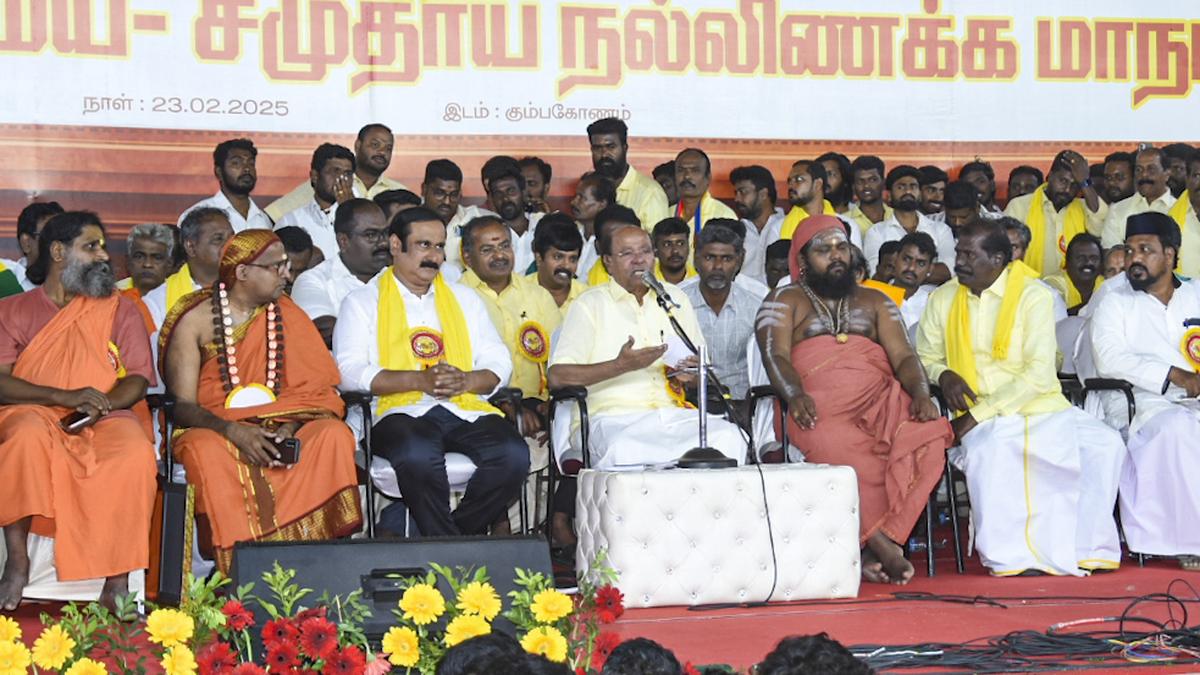
Despite having power, Stalin refuses to conduct caste census in T.N.: Anbumani
The Hindu
Pattali Makkal Katchi (PMK) president Anbumani Ramadoss on Saturday criticised Tamil Nadu Chief Minister M.K. Stalin for not conducting a caste-based survey in the State, “despite having the power, financial resources, and legal backing to do so.”
Pattali Makkal Katchi (PMK) president Anbumani Ramadoss has criticised Tamil Nadu Chief Minister M.K. Stalin for not conducting a caste-based survey in the State, “despite having the power, financial resources, and legal backing to do so.”
Speaking at the Chozha Mandalam Samaya Samuthaya Nallinakka Manadu (Chola Mandalam Religious and Social Harmony Conference) in Kumbakonam, organised by the Vanniyar Sangam, on Sunday (February 23, 2025), he said the DMK government continued to evade the issue, while States like Telangana and Bihar had successfully completed caste-based enumeration and implemented welfare measures.
“If we were in power, even if we didn’t have the authority, we would commission it because this is a matter of social justice. Despite having power, financial resources, and legal rights, Stalin falsely claims he cannot conduct the survey. The people will teach him a lesson,” Mr. Anbumani said.
According to Mr. Anbumani, all backward communities in Tamil Nadu were uniting, and the next Assembly election (in 2026) would be a testament to this.
He urged the Tamil Nadu government to conduct the caste census to safeguard the State’s 69% reservation quota. He claimed former Chief Minister M. Karunanidhi had the political will to work with PMK founder S. Ramadoss on several social justice initiatives, whereas Mr. Stalin lacked both intent and commitment.
Mr. Ramadoss, addressing the gathering, called for social harmony and unity, stating that no community should face oppression. He referred to the 1985 Anthropological Survey of India, which identified 4,694 castes nationwide, including 364 in Tamil Nadu. He emphasised that only when all 364 castes progressed equally could a just and equitable society be achieved. Without this, he warned, Tamil Nadu would remain divided by caste differences, hindering its overall development.
Mr. Ramadoss urged the government to create equal opportunities for all castes, citing Andhra Pradesh’s model, where backward communities receive government support through welfare schemes, dedicated corporations, and loan facilities— a system, he said, that was lacking in Tamil Nadu. He reiterated that a caste-based census was crucial to achieving true social justice.













